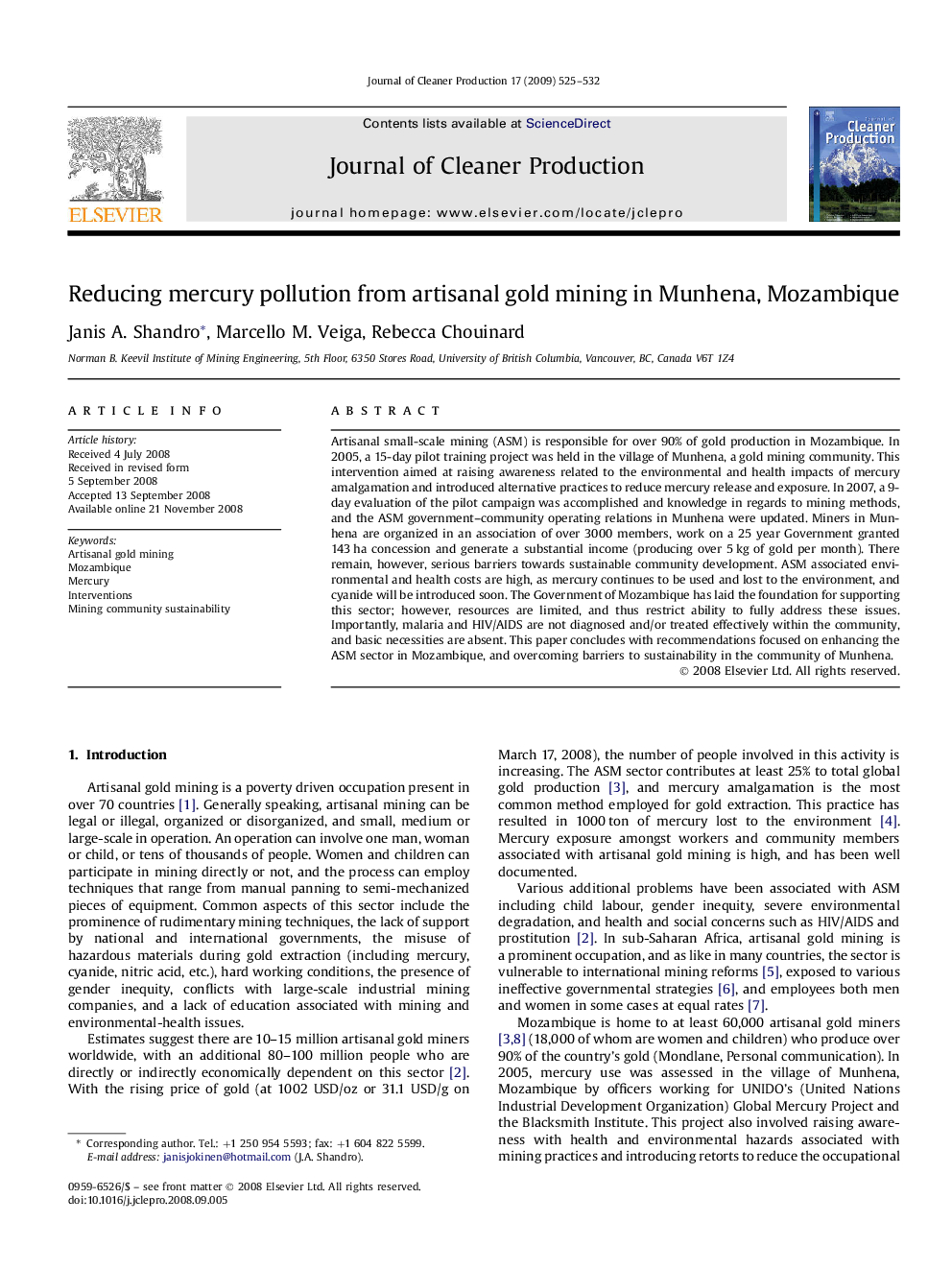| Article ID | Journal | Published Year | Pages | File Type |
|---|---|---|---|---|
| 1746789 | Journal of Cleaner Production | 2009 | 8 Pages |
Artisanal small-scale mining (ASM) is responsible for over 90% of gold production in Mozambique. In 2005, a 15-day pilot training project was held in the village of Munhena, a gold mining community. This intervention aimed at raising awareness related to the environmental and health impacts of mercury amalgamation and introduced alternative practices to reduce mercury release and exposure. In 2007, a 9-day evaluation of the pilot campaign was accomplished and knowledge in regards to mining methods, and the ASM government–community operating relations in Munhena were updated. Miners in Munhena are organized in an association of over 3000 members, work on a 25 year Government granted 143 ha concession and generate a substantial income (producing over 5 kg of gold per month). There remain, however, serious barriers towards sustainable community development. ASM associated environmental and health costs are high, as mercury continues to be used and lost to the environment, and cyanide will be introduced soon. The Government of Mozambique has laid the foundation for supporting this sector; however, resources are limited, and thus restrict ability to fully address these issues. Importantly, malaria and HIV/AIDS are not diagnosed and/or treated effectively within the community, and basic necessities are absent. This paper concludes with recommendations focused on enhancing the ASM sector in Mozambique, and overcoming barriers to sustainability in the community of Munhena.
